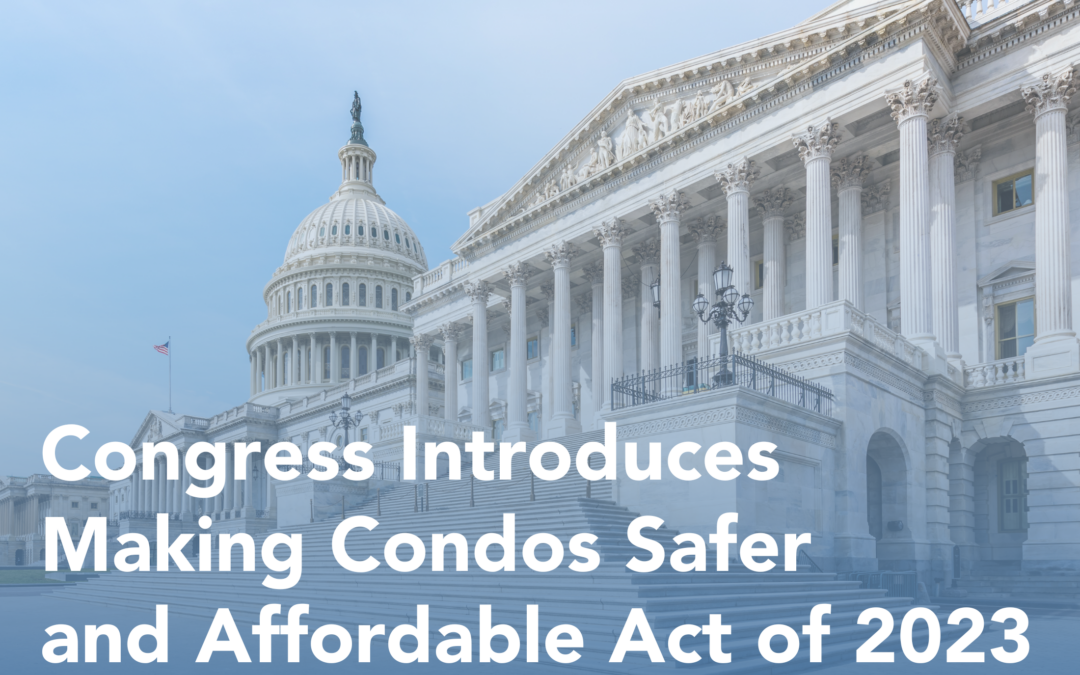On the eve of the 2nd anniversary of the deadly Surfside building tragedy, U.S. Representatives Debbie Wasserman Schultz (FL-25) and Bill Posey (FL-08) today introduced the bipartisan Making Condos Safer and Affordable Act of 2023 to provide comprehensive condo relief that would expand and ensure access to public and private loans for structural and safety repairs, providing bipartisan preventive assistance for millions of residents grappling with the building integrity realities exposed in the Surfside condominium collapse that took 98 lives. Wasserman Schultz’s district includes Surfside, Fla., where Champlain Towers South once stood.
Community Associations Institute (CAI) members are grateful to Representative Wasserman-Schultz’ and Representative Posey’s commitment to condominium safety. Since the tragic partial condominium collapse of Champlain Towers South two years ago, CAI is committed to condominium safety, structurally sound, and fiscally responsible communities. If passed, this legislation will provide important resources millions of Americans living in condominium buildings need. “Our collective efforts remain dedicated to the memory of those 98 individuals who lost their lives, those who lost loved ones, and those who lost their homes during this tragic condominium collapse,” says Thomas M. Skiba, CAE, CAI’s chief executive officer.
The Foundation for Community Association Research estimate there are 140,000-150,000 condominium and housing cooperative buildings in the U.S. According to the American Communities Survey, approximately two-thirds of the buildings are older than 30 years old. Some of these buildings may need critical repairs and homeowners may not have access to the funding needed. The Making Condos Safer and Affordable Act will provide access to low-interest, government backed loan products, which leads to safer and more affordable condominiums.
Congress needs to hear from CAI members and community association professionals to let them know why this legislation is important. We encourage members to contact their member of Congress and urge them to support this legislation.




most of them failed to create the necessary reserves and now the taxpayers are supposed to foot the bill.
Thanks to the CAI, who in 2010 lobbied heavily against mandatory reserve funding.
Please send me info on joining CAI
I wondered about what Donna said, since I live in one of those older buildings, so I checked with Chat GPT, which is not always accurate, but it did concur with what Donna said:
Yes, the Community Associations Institute (CAI) did lobby against mandatory reserve funding in 2010. The CAI is a membership organization that represents homeowners associations, condominium associations, and other community associations in the United States. They advocate for the interests of community associations and provide education and resources to their members.
In 2010, the CAI was involved in lobbying efforts related to reserve funding requirements for community associations. They opposed mandatory reserve funding, arguing that it could impose financial burdens on homeowners and limit the flexibility of community associations in managing their finances. The CAI advocated for alternative approaches to funding reserves, such as voluntary contributions or more flexible funding models.